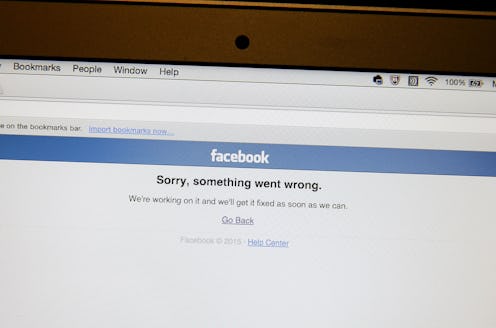News
Facebook Wages War On Clickbait

We've all seen those headlines, informing us "you won't believe what happened next!" and mysteriously alluding to "the mind-blowing secret they don't want you to know." It's called click-baiting, and Facebook has had enough. In response to complaints, Facebook announced Monday it's killing the click-bait headlines in your News Feed. Although the clean-up will only affect our News Feeds for now, Facebook's move could signify the beginning of the end for click-baiting — if only!
As irritating as many people find it, the use of click-baiting is extremely popular. The highly emotional, hyperbolic, and vague headlines are designed to entice readers to click on them to find out what the fuss is about. The headlines will tell you how you'll feel about a story, without revealing what the topic is — all while promising you'll never see the world in the same way ever again.
The psychology behind click-baiting has proven effective, pulling in insane numbers of Likes on Facebook. And since the articles have been getting Likes, they've been populating our News Feeds more and more. And now that people are getting inundated, they're fed up.
On Monday, Facebook announced its decision to curb the click-bait epidemic in a blog post.
We're making two updates, the first to reduce click-baiting headlines, and the second to help people see links shared on Facebook in the best format.
"Click-baiting" is when a publisher posts a link with a headline that encourages people to click to see more, without telling them much information about what they will see. Posts like these tend to get a lot of clicks, which means that these posts get shown to more people, and get shown higher up in News Feed.
However, when we asked people in an initial survey what type of content they preferred to see in their News Feeds, 80% of the time people preferred headlines that helped them decide if they wanted to read the full article before they had to click through.
Over time, stories with "click-bait" headlines can drown out content from friends and Pages that people really care about.
When determining whether a headline is click-bait, Facebook will monitor the bounce rate and visitor duration for each article. If a certain article gets many clicks, but readers leave after a short period of time, Facebook will conclude that the headline used click-bait, because the reader didn't engage with the article or video they'd clicked on.
On the other hand, if people spend an average amount of time on a page after clicking through to it, then Facebook will assume it was a story that users were actually interested in reading — one that, most likely, didn't use click-baiting tactics.
If you're one of the many people who hopes this phenomenon will die a quick death, and soon, then feel hopeful that this could be the beginning of the end. For now, you can at least make fun of click-baiting by creating your own hilarious parody headlines. What you come up with could change the way you look at your entire existence.